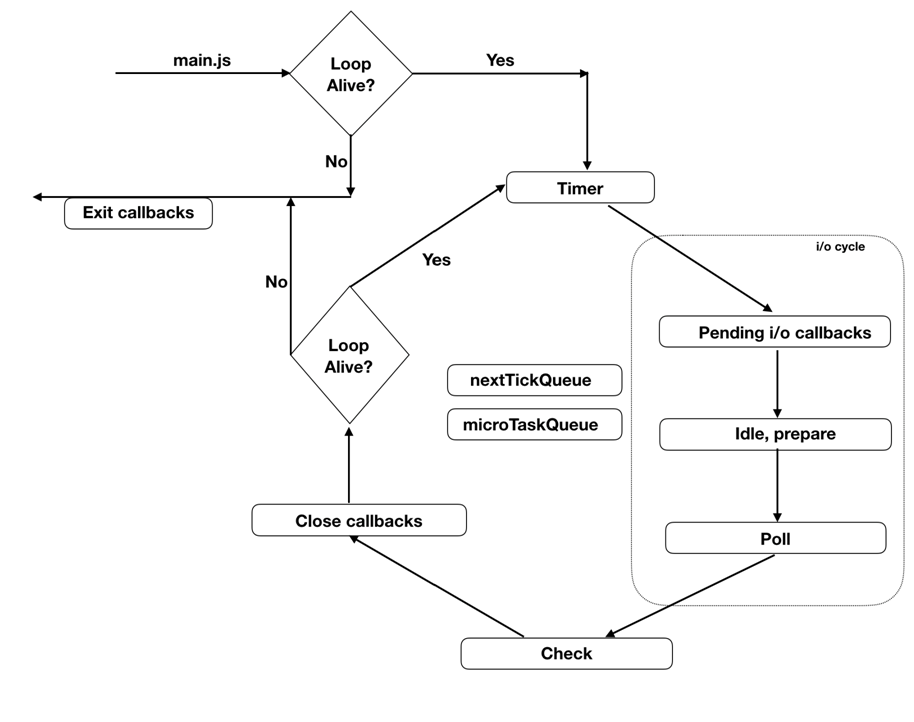The event loop is what allows Node.js to perform non-blocking I/O operations — despite the fact that JavaScript is single-threaded — by offloading operations to the system kernel whenever possible.
详情见下图


我们都知道JS是单线程的,当一个任务进入Node.js解释器的执行栈后,会首先看是同步还是异步代码,同步会推入主线程进行解释,异步代码会推入eventLoop事件循环中,这些任务会分为宏任务或者微任务,当执行栈中没有同步代码时,会先执行宏任务:主体script,setTimeout,setInterval,后执行微任务Promise.then,process.nextTick
console.log('script start');
setTimeout(function() {
console.log('setTimeout');
}, 0);
Promise.resolve().then(function() {
console.log('promise1');
}).then(function() {
console.log('promise2');
});
console.log('script end');
//script start
//script end
//promise1
//promise2
//setTimeout
setTimeout(() => { // 宏任务 new Promise(resolve => { console.log('promise') resolve(); }).then(() => { //微任务 console.log('then') }); // 宏任务 console.log('宏任务',1); // 宏任务 setTimeout(() => { console.log('setTimeout',1) }, 1000); }, 1000); 2 // promise //宏任务 1 //then //setTimeout 1
console.log('script start');
setTimeout(function() {
new Promise((resolve)=>{}).then()
setTimeout(function() {
}, 0);
}, 0);
new Promise(resolve => {
console.log('promise start');
setTimeout(() => {
console.log('setTimeout2');
resolve();
}, 1000)
}).then(function() {
console.log('promise1');
}).then(function() {
console.log('promise2');
});
console.log('script end');
//script start
// promise start
// script end
// setTimeout2
// promise1
// promise2

2019-05-10 17:11:45